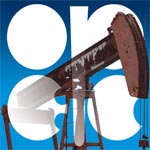Saudi, Iranian oil ministers: Prices should stand at 60-75 dollars
 Geneva - The oil ministers of Saudi Arabia and Iran said Monday their target goal for the price of oil was between 60 to 75 dollars a barrel.
Geneva - The oil ministers of Saudi Arabia and Iran said Monday their target goal for the price of oil was between 60 to 75 dollars a barrel.
"The days of oil as a primary fuel source for the people of the world are far from over," Saudi Minister of Petroleum Ali al-Naimi said.
His Iranian counterpart, Gholam Nozari, concurred with the assessment on the ideal price a barrel of oil should fetch on the market.
Anything lower and investment in the industry would contract, hurting development of energy resources, al-Naimi warned.
On Sunday in Vienna, the Organization of Petroleum Exporting Countries (OPEC) said it would not reduce its members' production goals.
Crude oil was being trading at around 44 dollars a barrel.
"The decision of OPEC is based on the world economy and the situation of the demand" for the resource," said Nozari.
The Iranian and Saudi ministers, speaking at an energy conference in Geneva, did not place any specific targets on switching to more renewable energies.
Saudi Arabia is the world's biggest oil exporter and Iran is fourth.
Former German chancellor Gerhard Schroeder, while pushing for more gas and oil pipelines to Europe, particularly from Russia and the Middle East, said that the continent would also have to move towards more renewable forms of energy.
Already, Germany was a leader in using renewables and currently 10 per cent of its energy came from these sources, he said, noting that in 15 years this reliance was set to double.
"Half of our energy may be from renewables by 2030," Schroeder said.
The former German leader said that while the West largely created the environmental problems at the root of climate change, the need of the developing world to industrialize should not come at risk to the planet.
"We need a multilateral approach to energy security," he said, adding that this would require peace and stability in the Middle East.
Schroeder said the United States should hold direct talks with Iran, Syria and the Palestinian Hamas movement.
Naimi said that Saudi Arabia was researching the use of solar power, particularly as sunshine exists in abundance in the desert kingdom, but noted that there was no current shortage of oil.
Iran was looking to nuclear energy "for meeting the energy needs of the people," Nozari said.
Tehran's nuclear programme has created much controversy, particularly in the West, where there was concern the technology might be used for weapons. (dpa)